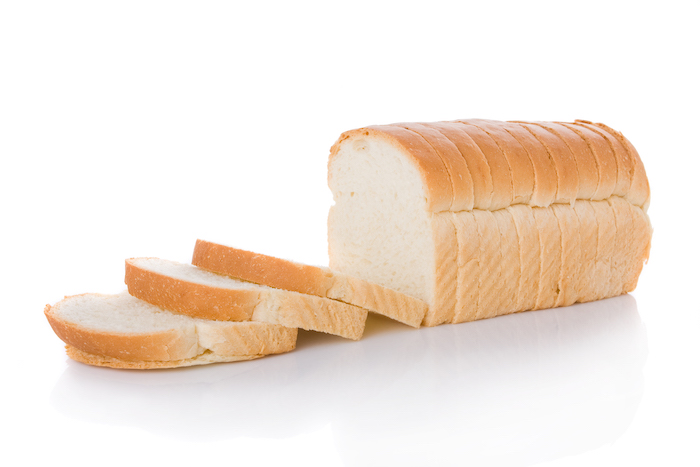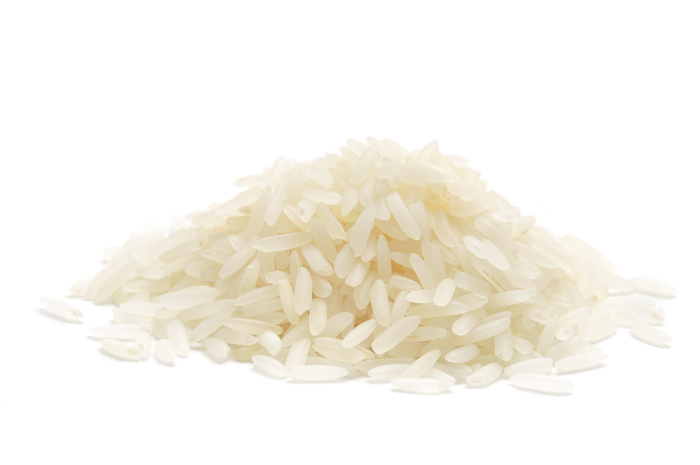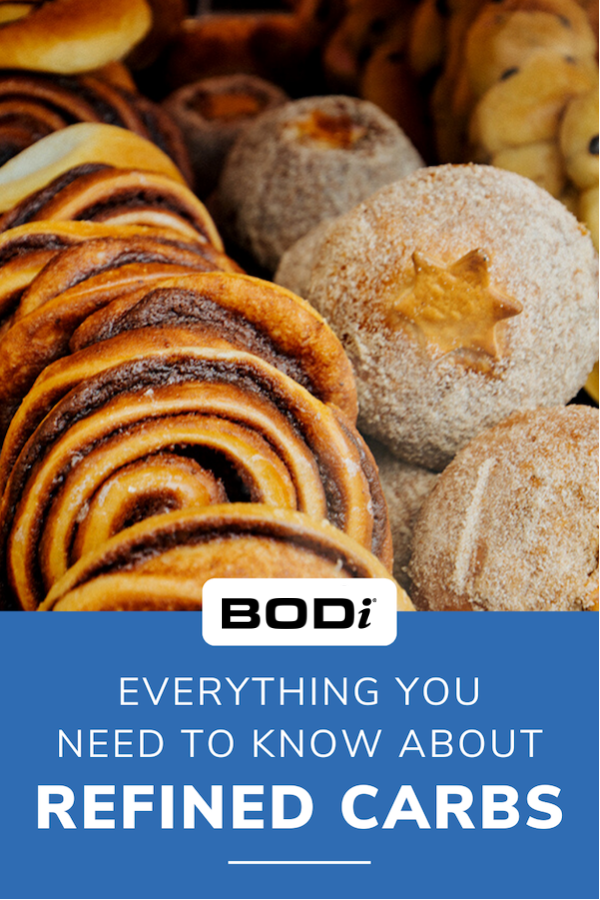Elegant people are often complex people, and it is beneficial to get along with them. Refined carbohydrates do the exact opposite.
Although carbohydrates are necessary for our bodies to function, there are healthy and unhealthy varieties of carbohydrates. Whole carbs should have a place on your plate, while refined carbs should be kept out. Read on to find out why.
What are refined carbohydrates?

Generally speaking, refined carbohydrates are processed foods that have been stripped of nutrients. “Refined carbohydrates are highly processed foods in which most fiber has been removed, allowing the body to quickly absorb the food in the form of glucose molecules for use as energy,” says Rebecca Maxwell, M.D., an integrative medicine specialist in Pearland, Texas. state.
To make white bread, for example, manufacturers remove the outer layer of the wheat kernel (called the bran) and germ, leaving only the inner endosperm, which is ground into flour.
Refined carbs vs. whole carbs
Refined carbohydrates are not good for the body. “Refined carbohydrates are quickly absorbed from the intestines into the bloodstream,” says Maxwell.
Refined carbohydrates cause blood sugar to spike, triggering a host of unhealthy mechanisms.A spike in blood sugar causes insulin to rush to the scene to lower it—and many times, it works so well that you end up crashing and Feeling hungry again! This is a vicious cycle that can lead to overeating and subsequent health problems.
“The modern American diet contains too many processed, refined and simple carbohydrates, leading to increased rates of obesity, diabetes, depression and other diseases,” Maxwell said.
A study published in American Journal of Clinical Nutrition Tracking 120,000 men and women for 16 years; researchers found that people who ate more refined grains, starches and sugars were most likely to gain weight.
In contrast, whole carbohydrates, also called complex carbohydrates, retain their basic structure—nothing is removed during processing.
“Complex carbohydrates are not stripped of any important nutrients, and they don’t have any added sugar,” says Diana Gariglio-Clelland, a registered dietitian in Pasco, Washington. Because complex carbohydrates are digested more slowly, they make you feel fuller more easily than refined carbohydrates and keep you full longer, so they control appetite and keep blood sugar levels more stable.
Some examples of complex carbohydrates include:
- whole grains
- whole fruit
- starchy vegetables
- beans and legumes
What foods are refined carbohydrates?

As part of a healthy, varied diet, it’s best to minimize your intake of refined carbohydrates.
Examples of refined carbohydrates include:
- White bread
- white rice
- white flour
- Processed breakfast cereals
- pizza dough
- cake
- cookie
- Pastries and other baked goods
Beware of healthy-sounding refined carbs
Don’t be fooled by marketing claims and labels that make certain foods sound healthier than they really are. For example, seven-wheat bread sounds healthy, right? Well, that’s not always the case. Those seven grains of millet can all be refined.
Just because cookies are “organic,” “all natural,” or “gluten-free,” doesn’t mean they aren’t refined. So be sure to turn over the box or bag and check the nutritional facts, not just the claims on the front of the package.
To choose the “best” processed carbs like bread, be sure to check the Nutrition Facts label. Choose products that have whole grains as the first ingredient, little or no added sugar, and as much fiber (and as few ingredients as possible).
Why we need carbohydrates
But just like fats, carbs shouldn’t be demonized. It’s just about choosing the right one. In fact, carbohydrates are the brain’s preferred fuel source.
“Our bodies need carbohydrates as our primary source of energy, from fueling our runs to allowing our brains and organs to function,” says Galileo-Cleland. “When we choose complex carbohydrates, it provides longer-lasting energy than the brief sugar spikes that come with refined carbohydrates and added sugars.”
Healthy carb choices

Healthy carbohydrates include fruits, vegetables, potatoes, whole grains, beans and legumes.
A good tool for choosing healthy carbohydrates is the glycemic index, a scale developed by researchers at the University of Sydney. Foods are ranked on the index based on how quickly carbohydrates are digested by the body and raise blood sugar levels.
“High GI” foods are usually refined carbohydrates, sugar and sweets. “Low GI” foods include whole carbohydrates, meat and eggs. For example: white bread has a GI value of 75, chickpeas are 28, and cauliflower is 6.
Realizing this is half the battle. While there is certainly room for cookies, muffins, and other refined carbohydrates in our diets, choosing complete, complex carbohydrates most of the time ensures a more balanced, healthy diet overall.

